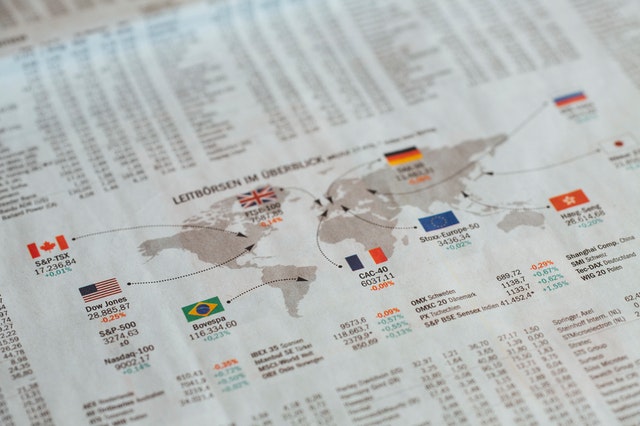Should I Invest in the Stock Market, or Put Money into a Savings Account?
- investing or saving
- Comments Off on Should I Invest in the Stock Market, or Put Money into a Savings Account?
- Posted on

So you’re trying to decide whether it’s best to invest your money in the stock market, or if it’s better to put your money into a regular old savings account. The decision can be difficult, but ultimately it all comes down to risk. Investing and saving are both ways to build financial wealth, but they are very different. In this article, we’ll discuss some of the benefits and drawbacks of both. Article Sponsored by: San Antonio Concrete Staining

Investing
If you’re thinking about investing, it’s important to understand what exactly investing is. When you invest money, you’re putting that money towards something, with the understanding that you could get a higher return or risk losing some (or potentially all) of the investment.
You can invest in stocks, or course or you can invest in bonds, mutual funds, or exchange-traded funds (ETFs). The goal of investing is that you get a higher return, but this isn’t always the case. If you’re investing, you’ll use either a brokerage account or an investment broker to handle your investments for you.
When you invest your money in something, you should expect to keep the money there for a minimum of 3 years or so. If you can leave the money there longer, that’s even better. Because of their nature, the value of your investments can fluctuate quite a bit, and it’s possible to lose money. For this reason, you should only invest money that you know you’re not going to need right away.
The main pro when it comes to investing, of course, is the potential of a very large return. If you’re smart and lucky, there’s a good chance that you could make a fair amount of money out of your investments. It’s also usually very easy to convert your investment products into cash.
It is very important to be aware of the risk that comes with investing. Returns are never guaranteed, and it’s possible you could lose money, either short-term or long-term. It can also be a very difficult process, and you’ll probably be better off getting an expert to help you with your investments. This will cost you money since the expert will need to be paid. And if you don’t get a high return or any return at all, this can drain you financially.
But if you’re okay with the potential of loss, and you don’t need the money you’re going to be investing for a few years, then investing in the stock market could be the right choice for you! It really depends on what level of risk you can endure.

Savings
So what if you don’t like risk, or you know that you can’t just let your money sit for at least 3 or 5 years with the possibility of loss? If that’s the case, it’s time to look into opening a savings account.
Instead of working with a brokerage, you’ll open up your savings account with a bank or credit union. The money will continue to be accessible to you, unlike investments, whenever you need it.
But you can also leave your savings alone to build up over the future. You’ll deposit your money into a low-risk bank account. You should try and look for the highest annual percentage yield savings account you can find, so that you can get the most out of your money.
Saving is significantly lower-risk than investing. You’ll also know how much interest you’ll earn on the balance in your account, and even though your return will be lower than what you could potentially earn if you invest, you don’t run the risk of losing any money. It’s also nice that saving is straightforward and easy. You won’t need to hire an expert to manage your savings—you can do it all on your own. If you’re someone who values stability, then a savings account is the best way to go.
There are of course drawbacks to a savings account though. Although with investments, there’s the possibility that you could lose money, there’s also the potential to earn quite a bit. You don’t get this same possibility with savings accounts. And, since the returns on savings accounts are so low, there’s a possibility that inflation could negatively affect your purchasing power.
Ultimately, when it comes to investing or saving, there isn’t one that’s objectively better than the other. It all comes down to how much risk you can tolerate, along with how soon you need access to your money.
If you’re fine letting your money sit for a few years, and a little (or a lot) of risk isn’t a problem for you, then consider investing your money. While you might lose some, there’s also the possibility you could get a significant return.
But if you don’t handle risk well, and you prefer stability over fluctuations, then it’s probably best to go with a savings account.
Thanks for stopping by. We hope you found the article informative and actionable. Contact us with any questions or to submit a suggestion or tip. If we end up using one on our site, we will give you full credit. Does your business need Concrete Staining In San Antonio? Visit our sponsor so we can continue to bring you valuable content.